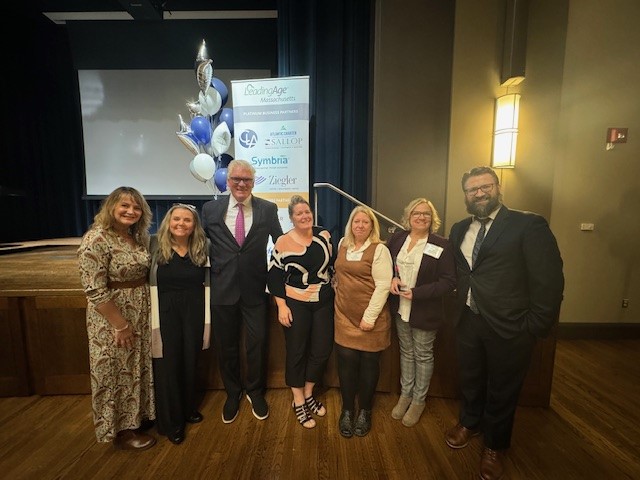Low wages for caregivers leave disabled Granite Staters without care
July 31, 2021 By TEDDY ROSENBLUTH Monitor staff
For 16 years, seven days a week, six hours a day, Tracey Cintron worked as a caregiver for Jim Piet.
Piet has lived with cerebral palsy since birth when his umbilical cord coiled around his neck, leaving him unable to walk and his arms stiffly folded into his chest.
Cintron typically arrived at 6 a.m. to help start his morning routine, which includes hoisting him from the bed into his showering wheelchair, bathing him, dressing him, lifting him into another wheelchair, brushing his teeth, preparing coffee and – if the weather is nasty – driving him to work. This, and his nightly routine, is repeated every day.
Cintron died in April, but the Piets’ house is still teeming with reminders of her 16 years caring for Jim – Tracey’s handsome black cat Zeus, who now slinks around the single-story home, a framed photo from Jim and his wife Pat’s wedding in which she wears a pale blue bridesmaid dress, and, most notably, the absence of a caregiver.
Since losing Cintron, the Piets have cycled through several caregivers, many whom leave after a couple of months. The reason is usually the same: The position just doesn’t pay enough. The most recent caregiver to leave told Jim he would look for a job at McDonald’s, where the starting salary is often more than many caregivers will ever earn.
Even after close to two decades of work, Citron never surpassed $13 an hour.
“Imagine $13 after 16 years of devotion,” Jim said.
Piet’s difficulty finding a caregiver is the norm, not the exception. Deborah Ritcey, the CEO of Granite State Independent Living, said every week about 18,000 hours worth of requests for care go unanswered because of a severe shortage of home caregivers.
Requests going unfilled include help cleaning homes, making meals, bathing and even getting out of their wheelchairs. She said her clients are sometimes forced to choose which services are most important to them – often getting out of bed and getting dressed – while other requests, like help getting moving around during the day, are pushed to the wayside.
“They could have nobody in the home all day and somebody might come back at 8 or 9 at night to feed them dinner and put them back in bed,” she said. “They could be in their home sitting in the wheelchair all day with no help. That’s how far behind we are.”
This year’s state budget, signed at the end of June, offered a modest bump in Medicaid reimbursements, increasing the starting pay for home caregivers from $10.50 an hour to $12.25 an hour.
Even with the wage increase, Ritcey said caregivers are woefully underpaid. In Concord, the living wage for adults with one child is $30.70, according to an annual Living Wage Calculator put out by the Massachusetts Institute of Technology. If you have two children, as Cintron did, the living wage is closer to $40 an hour.
To fill the overwhelming number of hours of requested care, her organization would need to employ an extra 470 workers, a number that seems impossible when several miles south in Massachusetts, home caregivers can do the same job for at least $16.10 an hour.
To Piet’s wife, Pat Vincent-Piet, the low wages are particularly offensive given how physically grueling the job can be. Cintron’s official cause of death was a brain bleed, but Pat said she thinks the years of lifting and pushing Jim accelerated her health’s decline.
She said Cintron took painkillers to continue to lift Jim while her muscles ached from years of physical labor.
“Since the pandemic, it’s been, ‘Oh, the front line workers, we need to clap for them.’ Don’t clap for them; pay them,” she said. “Especially for 20-year-olds that are going to work themselves so badly that they end up being sick.”
Pat and Jim received a stipend from Granite State Independent Living to advertise the position. It doesn’t matter how they massage the language or where they advertise – the listed salary, $12.75 an hour, is an immediate non-starter.
“It’s crickets,” Pat said. “No one responds.”
Even if Jim could afford to use his own income to boost the starting salary, paying out of pocket could threaten his eligibility for Medicaid, which is expressly for low-income Americans.
Until the Piets receive a response to one of their advertisements, Pat will have to serve as Jim’s caregiver, a decision that did not come easy to the couple.
Amy Moore, the program director of in-home care at Ascentria Care Alliance, said almost 70% of her caregivers are family members or friends of the disabled person they care for.
“After going a certain amount of time without being able to find a caregiver, they end up having to leave their jobs and we hire them,” she said.
This is less than ideal, she said. Adult children don’t always want their mothers bathing them. Wives don’t necessarily want their husbands performing their bowel program.
Still, this solution is often more pleasant for the disabled person than the alternative, which is to move into a long-term care facility.
For Pat, caring for Jim means she will have to quit her job at the N.H Council on Developmental Disabilities. It means she will have to put off ankle surgery and hoist her husband’s body weight on a braced foot. It means she cannot just be a wife – she has to be a caregiver.
“As much as we love each other, you need time apart to enjoy each other’s company,” Jim said.
Read More







